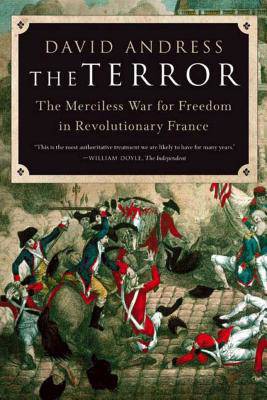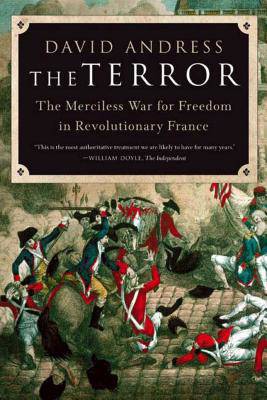
- Retrait gratuit dans votre magasin Club
- 7.000.000 titres dans notre catalogue
- Payer en toute sécurité
- Toujours un magasin près de chez vous
- Retrait gratuit dans votre magasin Club
- 7.000.0000 titres dans notre catalogue
- Payer en toute sécurité
- Toujours un magasin près de chez vous
Description
For two hundred years, the Terror has haunted the imagination of the West. The descent of the French Revolution from rapturous liberation into an orgy of apparently pointless bloodletting has been the focus of countless reflections on the often malignant nature of humanity and the folly of revolution.
David Andress, a leading historian of the French Revolution, presents a radically different account of the Terror. In a remarkably vivid and page-turning work of history, he transports the reader from the pitched battles on the streets of Paris to the royal family's escape through secret passageways in the Tuileries palace, and across the landscape of the tragic last years of the Revolution. The violence, he shows, was a result of dogmatic and fundamentalist thinking: dreadful decisions were made by groups of people who believed they were still fighting for freedom but whose survival was threatened by famine, external war, and counter-revolutionaries within the fledging new state. Urgent questions emerge from Andress's trenchant reassessment: When is it right to arbitrarily detain those suspected of subversion? When does an earnest patriotism become the rationale for slaughter? Combining startling narrative power and bold insight, The Terror is written with verve and exceptional pace-it is a superb popular debut from an enormously talented historian.Spécifications
Parties prenantes
- Auteur(s) :
- Editeur:
Contenu
- Nombre de pages :
- 480
- Langue:
- Anglais
Caractéristiques
- EAN:
- 9780374530730
- Date de parution :
- 26-12-06
- Format:
- Livre broché
- Format numérique:
- Trade paperback (VS)
- Dimensions :
- 137 mm x 213 mm
- Poids :
- 589 g

Les avis
Nous publions uniquement les avis qui respectent les conditions requises. Consultez nos conditions pour les avis.






